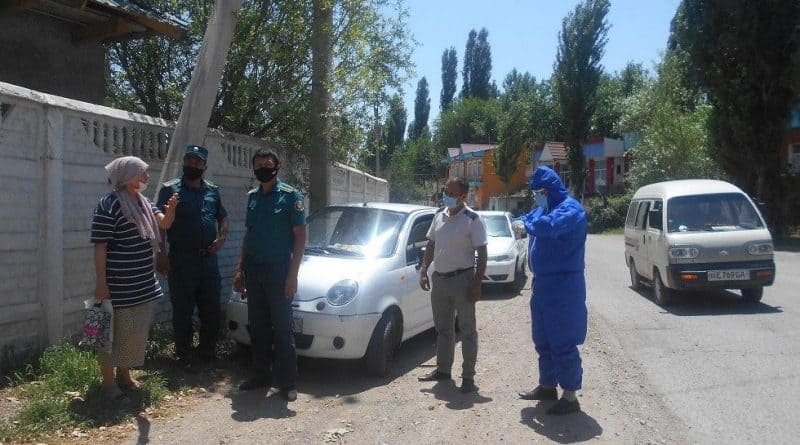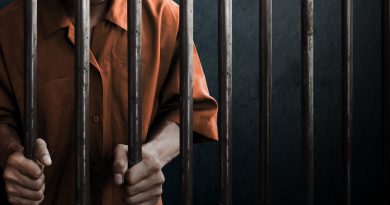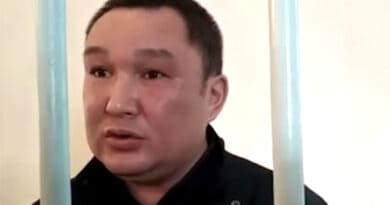Uzbekistan: human rights defenders were beaten and placed under house quarantine
The authorities of Namangan region forcibly interrupted the monitoring of the use of child labor on cotton plantations. On June 7, law enforcement officers detained a group of activists in Papsky district with beating.
Seven activists conducted a check on the farms of the region, recording the work of 14-18-year-old teenagers on the field cultivation. Responding to the numerous complaints of the predominantly Tajik population, they noted the socio-economic problems of the territory surrounding the village of Chodak.
As the head of the Human Rights Alliance, Elena Urlaeva, told ACCA, at some time, the attack on the activists began. According to the tactics of counteracting the actions of human rights defenders, already practiced over many years, some women attacked. They forbade girls on the field to talk with visitors, insisted on hiding their faces and not telling their age.
Law enforcement officers arrived in several cars and immediately began to tie their hands, trying to push them into the cars. Even from the passive resistance of the elderly, the security forces were furious and began to beat them. In the Alliance’s report, it was stated that Bekzod Norbaev was beaten with arms and legs, and the deputy head of the Department of Internal Affairs of Papsky district, Davron Zhuraev, was personally “involved” in the hits of Elena Urlaeva. They took her smartphone and deleted all information.
Then the human rights activists were taken to the local sanitary and epidemiological service, where they were forced to undergo tests for Covid-19. After forced procedures, female activists felt unwell and the doctors called an ambulance. At the instance of law enforcement officers, arriving doctors refused to confirm the traces of the beatings in written form.
After mocking at human rights activists, they were taken home and forbidden to leave their place of residence for 14 days as ostensibly they had already been infected with coronavirus.
In a conversation with ACCA’s journalist, Elena Urlaeva noted that the National Guard officers were standing at her door.
“We were punished in that way. We are actually under house arrest,” said Urlaeva. “Nobody says anything about the results of the tests. It created a stir in the house that we have coronavirus. Many children were playing in the yard, and now they disappeared instantly.”
Earlier, ACCA wrote about the work of children in the fields. Human rights activists found out the labor schedule of young agricultural workers. It turned out that the working day lasts from 7.00 to 17.00 with a break for a meager lunch. A particular concern of farmers is the requirement to wear synthetic masks to prevent coronavirus infection. According to meteorological data, these days the temperature exceeds 40°C in the shade, and at least 55°C is felt on the earth heated from the sun.
For work in such conditions, children receive no more than 30 000 sums ($ 3) per day. The legislation prohibits concluding labor contracts with minors; it even focuses on the complete elimination of child and forced labor in Uzbekistan.
As Elena Urlaeva told ACCA, the international labor organization is not interested in child labor in the summer, when it’s necessary to weed cotton.
“My colleagues, at their own risk, go to the fields,” the human rights activist emphasized. “Our powers, as the official monitors of the International Labor Organization (ILO), are valid only for the period of 2-month cotton picking. It isn’t known whether they will invite us to cooperation this year …”
In April of this year, the Minister of Employment and Labor Relations of Uzbekistan, Nozim Khusanov, counting on the favor of the ILO, sent an open appeal to the Cotton Campaign with a request to remove the boycott for the use of cotton produced in the country. He invited the Cotton Campaign for direct cooperation during the monitoring of the cotton campaign in 2020 and proposed to create a four-way mechanism for coordinated action between government bodies, Uzbek producers, foreign brands and local one on the complete elimination of forced labor.
“Any form of forced labor has serious negative consequences for the development of the cotton and textile industry in Uzbekistan and affects the country’s reputation,” the Minister said.




